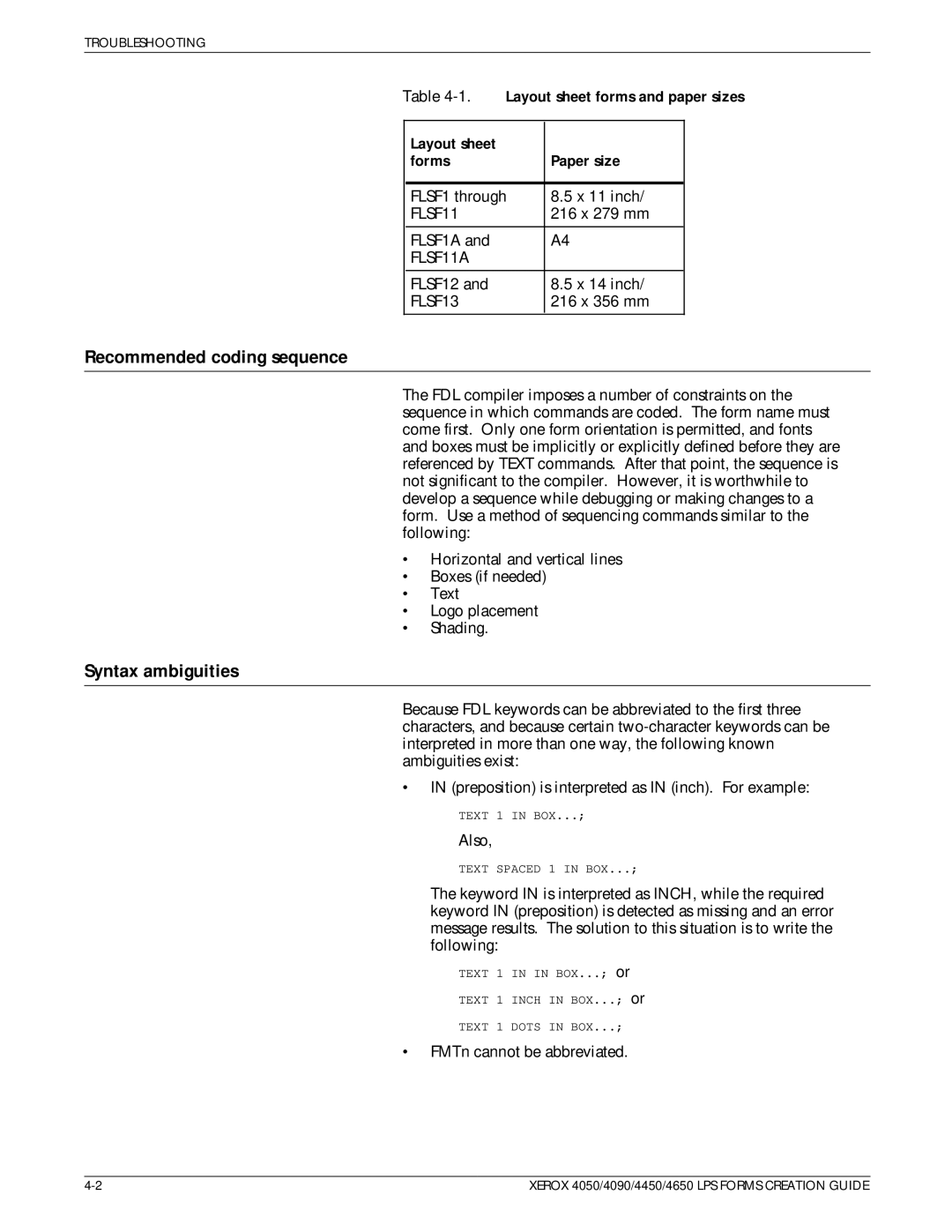
TROUBLESHOOTING
Table | Layout sheet forms and paper sizes | |||
|
|
|
|
|
Layout sheet |
|
|
|
|
forms |
| Paper size |
| |
|
|
|
| |
FLSF1 through | 8.5 x 11 inch/ |
| ||
FLSF11 |
| 216 x 279 mm |
| |
|
|
|
|
|
FLSF1A and |
| A4 |
| |
FLSF11A |
|
|
|
|
|
|
|
|
|
FLSF12 and |
| 8.5 x 14 inch/ |
| |
FLSF13 |
| 216 x 356 mm |
| |
|
|
|
|
|
Recommended coding sequence
The FDL compiler imposes a number of constraints on the sequence in which commands are coded. The form name must come first. Only one form orientation is permitted, and fonts and boxes must be implicitly or explicitly defined before they are referenced by TEXT commands. After that point, the sequence is not significant to the compiler. However, it is worthwhile to develop a sequence while debugging or making changes to a form. Use a method of sequencing commands similar to the following:
·Horizontal and vertical lines
·Boxes (if needed)
·Text
·Logo placement
·Shading.
Syntax ambiguities
Because FDL keywords can be abbreviated to the first three characters, and because certain
·IN (preposition) is interpreted as IN (inch). For example:
TEXT 1 IN BOX...;
Also,
TEXT SPACED 1 IN BOX...;
The keyword IN is interpreted as INCH, while the required keyword IN (preposition) is detected as missing and an error message results. The solution to this situation is to write the following:
TEXT 1 IN IN BOX...; or
TEXT 1 INCH IN BOX...; or
TEXT 1 DOTS IN BOX...;
·FMTn cannot be abbreviated.
XEROX 4050/4090/4450/4650 LPS FORMS CREATION GUIDE |
